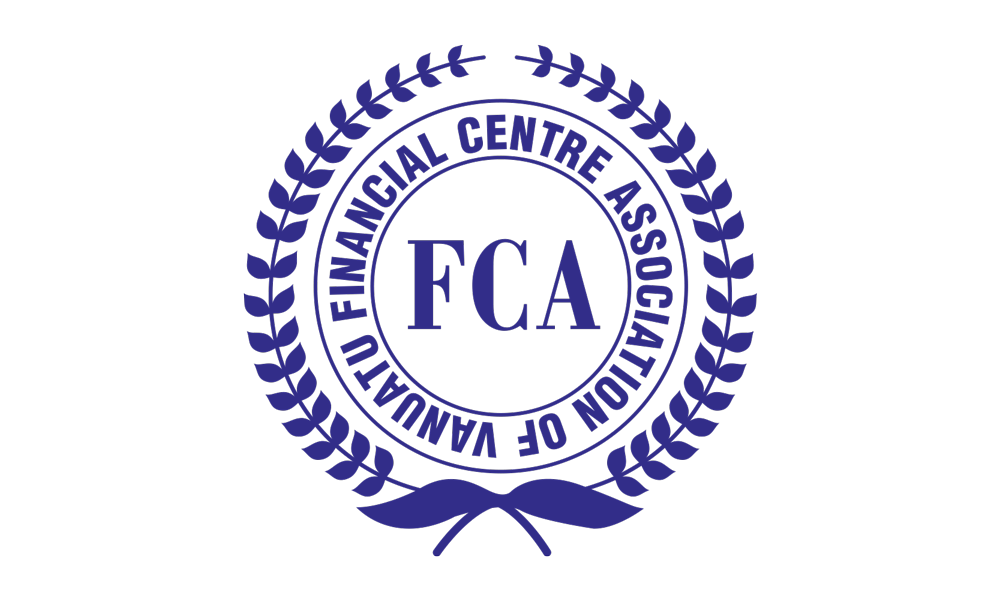Dear Hon. Minister of Finance, Johnny Koanapo Rasou,
Following rumours of a revised Business Licence bill, which we assume is very similar to the draft one presented at the end of 2019, we have decided to write this letter to express our concerns and to provide a different point of view to the one presented by the European Union to the Vanuatu Government. As discussed at our meeting, we have detailed below and in a previous email communication with VFSC our concerns and suggestions for a revised Bill that will address the shortcomings of the draft 2019 Bill while also achieving the overarching objective which is to have Vanuatu removed from the EU blacklists.
Our understanding of the present situation is that Vanuatu is currently included on two EU lists; the non-cooperative tax jurisdictions list (also known as the taxation blacklist) and the AML/CTF deficient countries blacklist, the list of High Risk Third Countries. The Bill seems to be a rushed attempt to get Vanuatu removed from both these lists by introducing economic substance requirements and a form of taxation on gross turnover.
It is our view that the 2019 Bill in its existing form has serious deficiencies and ‘overreaches’ in its attempt to address these issues, and furthermore will cause lasting damage to Vanuatu’s economy and sovereignty if passed in its present form without being able to achieve Vanuatu whitelisting from the most important of these two lists, the High Risk Third Countries list.
It is also misguided and inappropriate to link the two list as we are unfairly on the EU AML/CTF list (High Risk Third Countries) despite being removed from the FATF/APG list in 2018. As EU have indicated, they have recently established their own means of assessment (which was not the case when we were first included on their list in 2016). EU is now stating in vague terms something about Vanuatu not meeting their standards for transparency of ownership for certain types of corporate vehicles. This vagueness is not addressed at all by the new Business Licence Bill, meaning that the Bill is only really addressing the second EU black list – i.e. the non-cooperative tax jurisdiction list. This list, by the way, includes jurisdictions such as Fiji, American Samoa, Palau, Samoa, US Virgin Islands, Seychelles, and the Caymans. In other words, jurisdictions that are not exactly considered international pariahs in the same way that several of the countries included on the AML/CTF listing are (eg. Iran, Syria). Furthermore, inclusion on the tax blacklist is not what is causing Vanuatu the most problems with international trade and foreign currency transfers.
Vanuatu has for years now been a transparent jurisdiction. We have signed on to all the significant treaties about information sharing and mutual assistance; we are CRS participants; we have opened up transparency in all key aspects very quickly and at a significant cost for our small nation. Vanuatu has shown on numerous occasions its collaborative spirit with worldwide authorities when dealing with international crime, and in particular financial crime. Opening up our books and sharing information is something we have been committed to and have accepted as the cost of being a responsible global citizen.
This Business License Bill is an attempt by the EU to assimilate us and force us to adopt their way of seeing the world. It is a substantial change of paradigm; it is not about transparency and sharing with them information about their citizens, it is about steering our nation towards serving their interests above and beyond our own without any consideration or respect for who we are as a sovereign nation.
There are several key issues that we believe need to be understood and addressed:
- EU’s retention of Vanuatu on its blacklist for AML/CTF even after Vanuatu was removed from the FATF’s blacklist;
- EU’s desire for Vanuatu to implement economic substance requirements so as to enable Vanuatu to be removed from EU’s non-cooperative tax jurisdiction list;
- Vanuatu’s sovereignty and right to self-determination in light of the above two issues;
- The Vanuatu International Finance Centre and the role it plays in Vanuatu’s longer term economic success.
- The proposed Business Licence Bill and how it relates to the above four key points.
1. The EU’s AML/CTF Blacklist
This is arguably the most important issue, as it has the greatest impact on the Vanuatu reputation.
Vanuatu was removed from the FATF list for AML/CTF in June 2018 following much effort by the Vanuatu Government and key stakeholders to pass the necessary legislation and implement key regulatory and enforcement reforms, including transparency of ultimate beneficial ownership.
Almost 2 years later on 7 May 2020, the European Commission (EC) released a Delegated Regulation which included the following statements in its Explanatory Memorandum:
For other countries which were delisted by the FATF since the adoption of Delegated Regulation (EU) 2016/1675, the assessment by the Commission is still ongoing…Regarding Vanuatu, available information sources (notably recent relevant information from the Global Forum) did not allow the Commission to conclude, at this stage, whether it addressed its strategic deficiencies, notably with regard to transparency of beneficial ownership….The Commission will make a review of the AML/CFT regime of those countries as a matter of priority and will engage with them as appropriate, based on the revised methodology.
The retention of Vanuatu on the EU’s AML/CTF blacklist with no satisfactory explanation provided as to reasons why, nor the promised priority review and engagement, has caused significant damage to Vanuatu’s reputation and economy not to mention the ability for its banking sector to establish and maintain correspondent banking relationships with overseas financial institutions. These correspondent banking relationships are essential for international trade and as such impact the GDP of the country.
We are aware that Vanuatu’s Ambassador to the EU is currently engaged in dialogue with the EU on this matter, and the FCA have been present for some of these discussions. Vanuatu can be removed from the EU listing at any moment by the EU/EC (it should have happened in July 2018 in our opinion). We are concerned that the EU is not prioritising this matter as it promised to do.
We also have a very real concern that the EU will use the inclusion of Vanuatu on this AML/CTF blacklist as “leverage” to force Vanuatu to make the changes the EU desires in order for us to be removed from their less important list of countries with attractive tax regimes (called somewhat discriminatively the list of “Non- Cooperative Tax Jurisdictions”). Alternatively, the EU are using the unjustified blacklisting for something else on their agenda.
Our recommendation to the Vanuatu government in its negotiations with the EU is to therefore refuse to address or even consider the issues raised by the EU in its non-co-operative tax jurisdictions blacklist until such time as it removes Vanuatu from its AML/CTF blacklist.
2. Non-cooperative Tax Jurisdiction List (Economic Substance Requirements)
In order to understand what the European Commission (EC) requires of Vanuatu for it to be removed from non- cooperative tax jurisdiction list, it is helpful to refer to the Outcome of Proceedings of the Council of the European Union dated 8 November 2016 which outlines the Council’s conclusions on this topic:
Paragraph 2.2 of the annex states “The jurisdiction should not facilitate offshore structures or arrangements aimed at attracting profits which do not reflect real economic activity in the jurisdiction.”
The OECD details what is meant by substantial activity in its paper Resumption of Application of Substantial Activities Factor to No or only Nominal Tax Jurisdictions as follows:
It would need to introduce laws to (i) define the core income generating activities for each relevant business sector; (ii) ensure that core income generating activities relevant to the type of activity are undertaken by the entity (or are undertaken in the jurisdiction); (iii) require the entity to have an adequate number of fulltime employees with necessary qualifications and incurring an adequate amount of operating expenditures to undertake such activities; and (iv) have a transparent mechanism to ensure compliance and provide an effective enforcement mechanism if these core income generating activities are not undertaken by the entity or do not occur within the jurisdiction.
This allows us to conclude that the EC will press on the economic substance requirement as hard as they can, and this is the only way out of the blacklist other than meaningful (not nominal) corporate income tax. There are things we can do even with the substance requirements that would work more effectively than what is contained in the draft Bill of 2019. Effective place of management could be drafted in a way to require only main business decisions to be made in Vanuatu, not every decision. Nominal directorship services could be a new revenue stream. Residency permits could be granted even for foreign directors, who only come to Vanuatu when those material decisions need to be made. These are just a few examples of what can be done to achieve the substance requirements while still making Vanuatu an attractive destination for quality international companies.
Recommendation: Several of our laws will need to be changed to accommodate this new way of thinking in the business world. The concept of “Economic Substance” and the core income generating activities, and permanent establishment bring a significant change of paradigm to Vanuatu’s current legal framework, and we recommend that a specific committee or task force is appointed to study the ramifications of such a change and to suggest a path that would be in the national interest first and foremost while reaching request and demand from EU. This can also be an opportunity for us to really start the transition to a digital economy and leverage our natural advantages in this area.
EU is working for EU, not for Vanuatu
Every EU country wants to attract foreign investors (including investors from other EU Member States). They also want to encourage local businesses to reinvest profits in their home country. Especially important are investments which are related to the export of goods and services – factories, service centres, and financial service providers. The number and volume of businesses established in a country will directly influence the level of economic activity in that country and the general standard of living, unemployment rate, and minimum wage. The EU Commission acknowledges that “Decisions whether to invest less or more are influenced by the effective marginal tax rate, i.e. the tax burden on the last euro invested in a project that just breaks even (the ‘marginal’ investment). The smaller the effective marginal tax rate the more conducive to investments the tax system.”
Therefore, tax competition exists between EU Member States. Obviously, the EU is also competing against the rest of the world for foreign investment. Smaller countries are therefore forced to implement new tax regimes (as we are seeing with Vanuatu), which would allow the EU to “retrieve” investors from these countries back to the EU. The “EU tax black list” was born explicitly to achieve this.
It is important to note that EU Member States do not apply identical taxation and transparency laws. In fact it is the opposite, they are competing with each other to implement more attractive taxation systems which allow them to attract investors from other EU countries. Officially, it is required that every country apply minimum corporate income tax level, but a lot of countries have special incentives that allow companies to reduce or postpone payment of taxes. For example, Malta officially applies a headline 35% corporate income tax rate. However, if the company distributes dividends to shareholders, 30% of the corporate income tax is refunded to the company. So effectively, Malta applies a 5% corporate income tax rate. The examples are numerous in the EU, with Monaco, Andorra, Liechtenstein, Ireland (double Irish tax scheme), Luxemburg, the Netherlands, and Cyprus all named by the IMF in their report on tax havens:
“The eight major pass-through economies—the Netherlands, Luxembourg, Hong Kong SAR, the British Virgin Islands, Bermuda, the Cayman Islands, Ireland, and Singapore—host more than 85 percent of the world’s investment in special purpose entities“
Of these countries, only the Cayman Islands appears on the EU tax blacklist (!)
These examples and previous experience by BVI and other jurisdictions prove that it is possible to comply with EU legislation yet also remain competitive and NOT destroy your own country’s economy.
As a general rule, if the country applies impose a corporate income tax it is not subject to the above “substance” requirements. However, if a jurisdiction imposes only nominal corporate income tax to avoid the requirements, the “substance” requirements still apply.
Vanuatu should look to other jurisdictions who were successful in being delisted earlier this year. These include Armenia, Antigua and Barbuda, Bahamas, Bermuda, Belize, British Virgin Islands, Cabo Verde, Cook Islands, Marshall Islands, Montenegro, St Kitts and Nevis, and Vietnam. We should be looking to implement similar strategies and legislation (where possible); in many cases introducing meaningful presence requirements was enough to get these jurisdictions off the list, with no need for changes in taxation (for example, there is still no corporate income tax in UAE, the British Virgin Islands, or Bahamas)
The economic substance requirement is a common standard now around the world. What we can do though, is make these requirements workable so that the Vanuatu international finance centre remains alive and healthy, just as other jurisdictions have done. The Bill in its present form will only result in the death of Vanuatu’s international finance centre, while causing lasting damage to the economy, and diminish our sovereignty as we end up even more dependent on the mercy and aid of organisations like the EC.
3. Sovereignty and the Right to Self-Determination
The purpose of the Business Licence Bill is stated as to ensure resident entities have a substantial economic presence in Vanuatu. This is not a proper purpose for a Vanuatu Act of Parliament. The purpose of an Act must be linked with national objectives and be in the national interest. Nothing in the Bill demonstrates why it is in the national interest to enact it. The current objective should actually read: “the purpose of the Act is to please the European Union by limiting our sovereign rights as a Nation and limiting the rights of Vanuatu Residents.”
The aim of the Bill is to weaken the Vanuatu International Finance Centre, therefore it is also aimed at weakening Vanuatu sovereignty and national wealth. More importantly, the proposed Act stands opposed to important rights and principles enshrined in Vanuatu’s Constitution and civil and criminal law.
If the government wishes to surrender Vanuatu Constitutional rights and protections of law given to its people for the benefit of the European Union, as necessarily implied in this Bill, it would be simpler to negotiate a return to the French and British Condominium – at least that would impose some of the costs of government back on the former colonial powers and might even be a basis for the government to negotiate for Social Security, health benefits and rights of migration to work in Europe or the UK! It is clear that EU wishes to buy sovereignty over Vanuatu as cheaply as it can – put it out of business, drive tax revenues back to the EU and leave Vanuatu to cope with the social and economic consequences having accepted a mess of dependent aid in place of the birthright of its sovereignty and economic independence.
At the very least, we should be negotiating hard and ensuring that we reach a position that protects Vanuatu’s interests rather than capitulating entirely to the EU’s demands. Vanuatu should be approaching other jurisdictions such as Taiwan, the US, or another middle-sized nation immune to EU sanctions with a view to establishing a trade and commercial treaty that will act as a backstop against this coercive activity. By forming a regional and/or global economic co-operation sphere with other similar countries, these kinds of sanctions ultimately lose their power and sovereignty is maintained.
4. The Role and Importance of the International Finance Centre to Vanuatu
The Vanuatu Financial Centre Association (FCA) was established in 1972 when Vanuatu was still a condominium ruled by the UK and France. In the 48 years since establishment, the Association has grown to 30 member organisations employing close to 1000 Vanuatu citizens. FCA members operate across a wide range of sectors including banking, insurance, real estate, trusts, securities, investment, accounting, legal, corporate and business services, and general money services. Our members are active in many areas of public life, and donate their time to various charities and industry groups, as well as provide their expertise through appointments to the Boards of several public sector institutions.
The international finance centre (IFC) is also represented by the FCA and is a key contributor to the Vanuatu economy. There are currently more than 3000 international companies registered with the VFSC who contribute hundreds of millions of Vatu to the country each year in registration, renewal and other government fees alone. These international companies also directly contribute towards the employment of hundreds of Ni-Vanuatu by FCA member organisations who provide services to these companies. The destruction of the IFC by enacting legislation such as the Business Licence Bill is virtually assured, and these international companies will simply relocate to other jurisdictions (including the EU) never to return. In the current economic environment, where approximately 26,000 Vanuatu citizens are facing unemployment in the short to medium term due to COVID-19, the country can ill-afford to create more damage to its economy by passing legislation of this nature.
5. The Business Licence Bill
The paragraphs above have detailed the key issues surrounding the Business Licence Bill and how in its current form it does not serve the best interests of Vanuatu, nor does it address in a satisfactory manner the measures required to remove Vanuatu from the EU list of non-cooperative tax jurisdictions. More importantly, the focus should be on removing Vanuatu from the AML/CTF black list first, as this is more critical.
The revenue (turnover) tax proposed in the Bill is not something that could satisfy the requirements of fair taxation, otherwise the substance requirements would have not been introduced in the Bill. Furthermore, under the proposed Bill a business will be subject to pay tax on its export of services (but not goods) which is a seriously flawed concept.
A fundamental part of any economy is the export of goods and services. Export of services means that the value generated in the country by local employees is sold outside the country, and money from these sales are “injected” into the country’s economy. Moreover, every international business attracts foreign citizen employees, which attracts knowledge, international know-how and direct economic benefit, as they work together with locals and spend their earnings in Vanuatu. Accordingly, every company which exports goods or services is vital to the country’s economy. Even though it may not pay direct taxes, the economy is significantly influenced directly and indirectly in a positive way. Therefore, it is not surprising that many countries apply different incentives in their tax regimes in order to support export of services and attract foreign investments. It is rare indeed to see a country tax its own exports, which is another reason why the Bill needs amending.
As already stated above, there is no requirement to introduce an income tax if the economic substance requirements are satisfied as evidenced by jurisdictions such as UAE, BVI and Bahamas. It should also be noted that a similar “business licencing regime” was attempted in the Federal Territory of Labuan without success. A flat tax on turnover is also regressive in nature and discriminatory. The Bill also confuses the notion of revenue by including asset sales which merely represent a return of capital as revenue of the business. There is no explanation as to why such a strange concept of revenue is needed, or indeed why any scheme for business licensing would require anything other than the payment of a flat fee as, for example is the case with normal professional regulation of doctors and lawyers.
This component of the Bill should therefore be amended to remove this tax on turnover, as it represents a form of double taxation on turnover when Vanuatu already has a value-added tax.
The Vanuatu Financial Centre Association is ready and willing to work with the Government to redraft the Bill so that it achieves the best possible outcome for the nation.
Recommendation:
According to several discussions we have had with experts both in Vanuatu and overseas, the issues should be split and not mixed within one single Act. The Business Licence Act should simply address who needs to register for a business licence, business license fees, and other administrative issues.
The concept of economic substance should be addressed in a completely separate Act and not hurriedly drafted to be included in a Bill that deals with business licence fees.
In order to modernise our International Finance Centre we have to amend several of our existing Acts and Regulations. We have to have a vision, and to stand on strong principles such as TRANSPARENCY, FREEDOM, SOVEREIGNTY, AND PROSPERITY.
Yours sincerely,
Martin St-Hilaire
- https://data.consilium.europa.eu/doc/document/ST-14166-2016-INIT/en/pdf ↩︎
- https://www.oecd.org/tax/beps/resumption-of-application-of-substantial-activities-factor.pdf ↩︎
- https://ec.europa.eu/info/sites/info/files/file_import/european-semester_thematicfactsheet_ taxation_en_1.pdf ↩︎
- https://www.imf.org/external/pubs/ft/fandd/2018/06/inside-the-world-of-global-tax-havens-and-offshore- banking/damgaard.htm ↩︎
- https://www.oecd.org/tax/beps/resumption-of-application-of-substantial-activities-factor.pdf ↩︎





